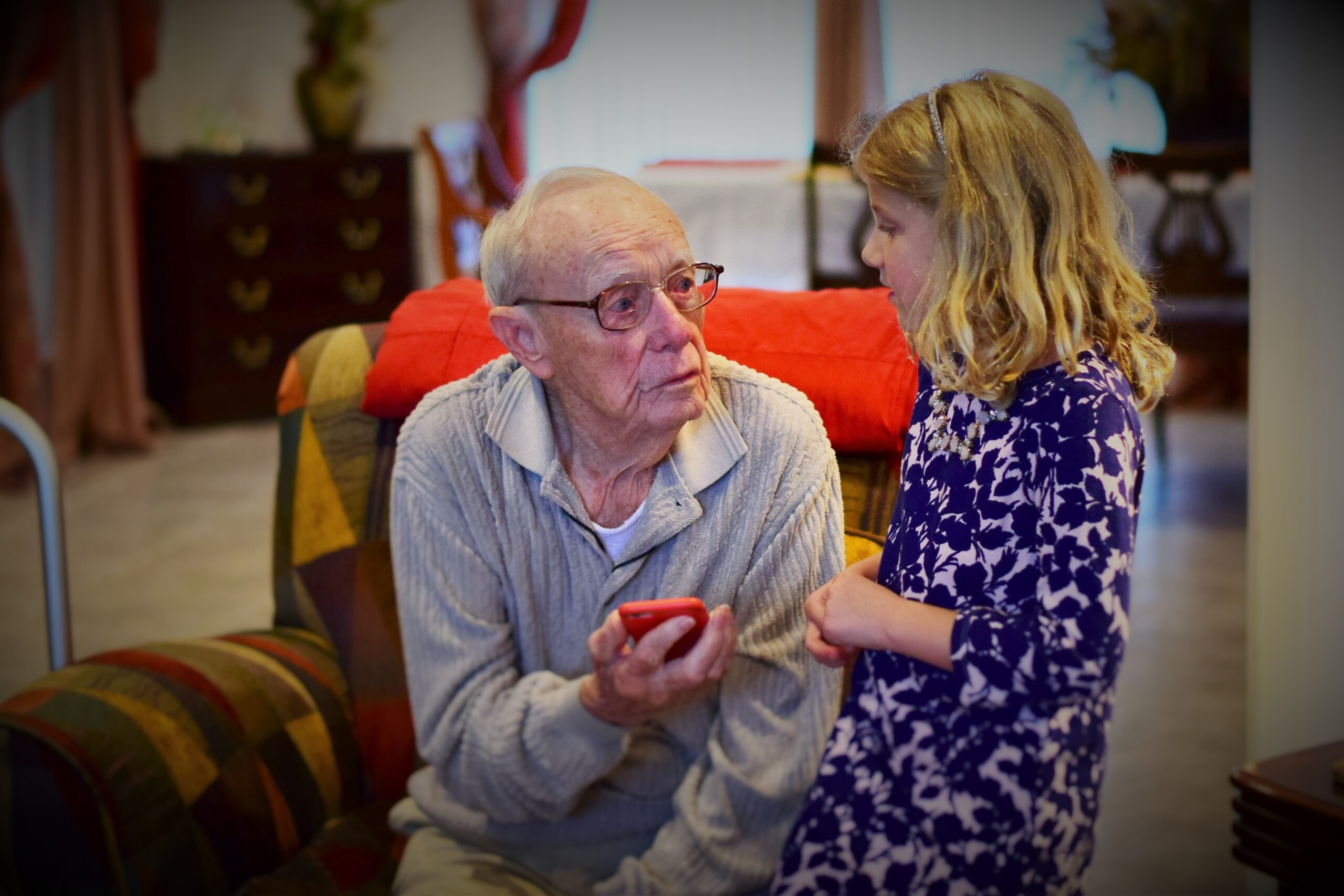While many people focus on holiday visits, your loved one in assisted living or memory care should enjoy spending time with their family and friends all year round. No one wants to feel alone or forgotten. Visiting a senior loved one who resides in memory care can be complicated, however – especially when mental and cognitive challenges are resulting in unpredictable behavior. These visitations, while often difficult, are an important part of taking care of someone with memory loss or dementia. In this article, we help families prepare for and enjoy their memory care visits, providing concrete advice for those who fear that dementia is harming their relationship.
Advice for Dementia Care Patient Visits
- Develop Empathy for Their Experience
When a family member experiencing dementia begins to act out with aggression, it is usually related to their medical diagnosis. Dementia can adversely impact behavior, mood, and sense of reality, often causing anger or fear. Loved ones should not consider these episodes as personal attacks – instead, illogical reactions are likely symptoms of their declining brain function. By understanding that these reactions are associated with the disease, family members can set their expectations before visiting, and prepare to respond with compassion. Educating oneself about the progression of dementia helps to provide valuable insight into what they are experiencing. - Expect a Range of Emotions
Preparing mentally for memory care visits can positively impact those interactions with your loved one that you dread. Some days will be better than others, that is an undeniable fact. On a good day, your loved one may be smiling and loving. On a difficult day, however, they may be so confused that they do not even recognize their loved ones. Before visits, mentally prepare for all possibilities. - Establish a Familiar and Comforting Routine
Creating a routine can provide much-needed calm in the storm that a dementia patient finds themselves in. Begin with a familiar greeting and develop a consistent routine for your visits. Whether sharing photos, strolling through the garden, or watching reruns of an old TV show, familiar routines can significantly reduce anxiety and offer a sense of shared interests. If you notice a positive reaction to a specific word, action, or activity, be sure to use it often. - Integrate Compassion into Your Conversations
Effective communication with a family member with dementia requires patience. Approach each conversation with a calm, measured tone, using clear and easy-to-understand language. If they can’t find the right words or become frustrated, don’t correct them, just smile and continue the conversation. Non-verbal actions like a gentle hand on the shoulder can communicate affection when words are difficult. - Manage Challenging Moments
It’s important to stay calm if the situation becomes too challenging, as arguing or fighting can escalate fear and anxiety for your loved one. Try to gently change the focus of the conversation, or introduce a more soothing activity. If your family members become overly agitated, acknowledge their emotions and provide them with some space. The personnel at the memory care community are invaluable partners in these situations, as they have the required experience and knowledge required to address their needs and behaviors. Remember, the objective is always to establish a feeling of safety and support, even during visits.
My Care Finders helps families find the right assisted living or memory care facility for their loved one’s needs and requirements. Call us today to schedule a consultation to discuss your situation and assess your needs. Our professional team is trained to work with families of those with dementia, and we are prepared to help you and your family cultivate and maintain loving relationships.



